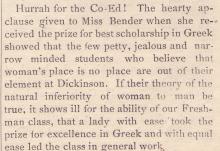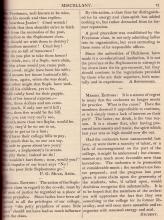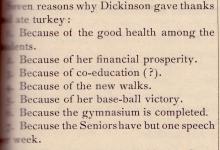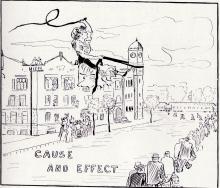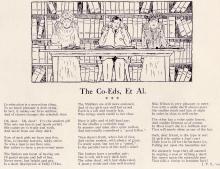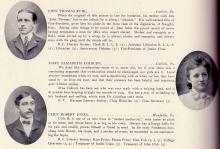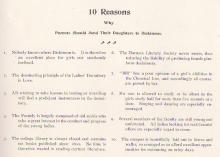Freshman Class Split Over the Co-ed Question
The October 1885 Dickinsonian mentions in the "Locals" section that the Freshman class is torn over the question of co-education. It was stated that ten members of the class "refuse to join the class-organization if the co-eds. are allowed to join." The other half of the class insisted that an invitation be "extended to the fair causes of strife."


